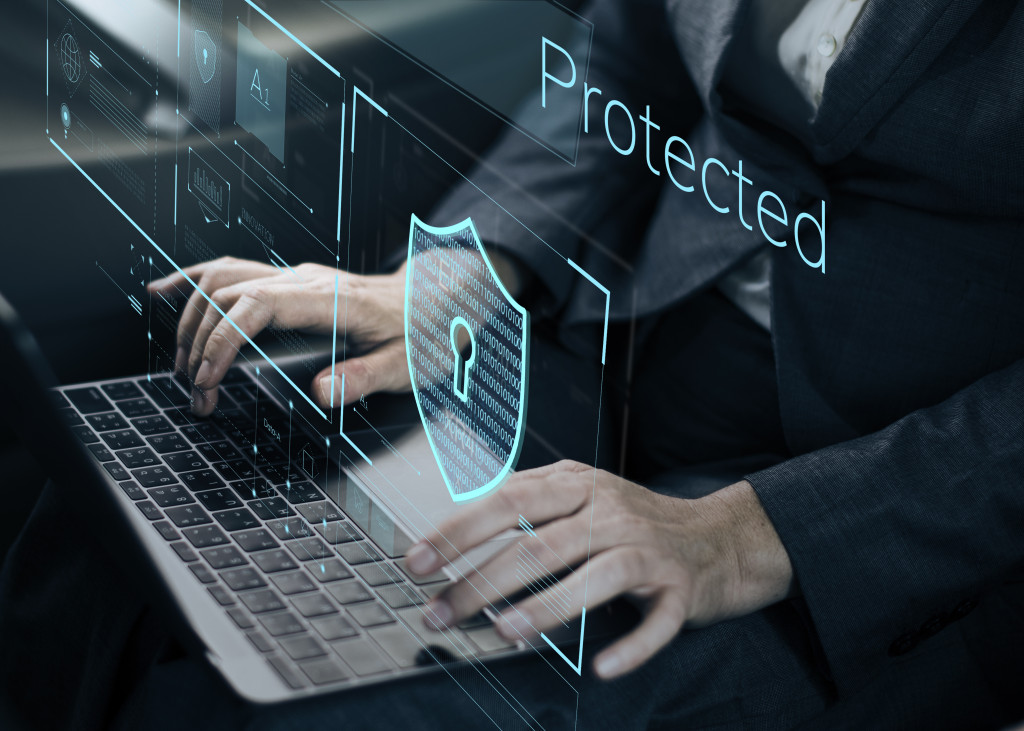- Develop a comprehensive security plan to protect against physical and digital threats.
- Install high-quality locks on doors and windows and conduct fire drills for physical safety.
- Invest in antivirus software and train employees for cybersecurity protection.
- Have clear protocols to identify, contain, and report suspicious activities.
- Utilize professional mediation law services to resolve employee disputes quickly.
Business safety is a crucial concern for today’s organizations. It is essential to protect against physical dangers like fires, floods, and crime, and it is also imperative to safeguard against digital threats like cyber-attacks, data breaches, and malware. Statistics show that the cost of dealing with a significant breach or incident can be astronomical: last year, the average price of a data breach was $3.86 million.
In addition to financial damages, businesses must also consider the long-term reputational damage caused by an incident. A lack of customer trust can take years to rebuild once breached — if ever. Companies need to create plans and strategies to protect against security incidents before they happen proactively.
However, keeping the business safe will require you to look at multiple angles. Here are some key areas to consider when creating a safety plan for your business:
Overall Security
Protecting a business from physical and digital threats is essential for its success. By creating and implementing a comprehensive security plan, companies can minimize the chance of costly incidents, maintain customer trust, and ultimately improve their bottom line. Here are a few to consider:
Physical Security
Physical security involves protecting against real-world physical dangers that can affect the business. This could include things like fires, floods, theft, or vandalism. To ensure your business is prepared for any potential disaster, it is essential to assess current security measures and create strategies for improved safety. For example, installing high-quality locks on all doors and windows and conducting periodic fire drills can help minimize risk in an emergency.
Cybersecurity
With more businesses moving online, cybersecurity has become increasingly important. Cybercriminals are constantly devising new ways to access sensitive data or disrupt systems — meaning businesses must stay ahead of the curve by creating secure networks and encrypting digital data. It’s also essential to have policies in place to protect against phishing scams or malicious software attacks. Consider investing in reputable antivirus software or hiring trained IT security staff to help monitor vulnerable areas of your network.
Employee Education & Awareness
Educating employees about safety protocols is another crucial factor in staying secure. Regular training sessions should be conducted on password protection and data privacy laws so everyone understands how to handle sensitive information appropriately. Additionally, ensure employees know standard safety procedures (such as locking up computers at night) to act quickly if suspicious activity is noticed.
Safety Protocols
Finally, it is critical to have a clear safety protocol in place for when an incident occurs. This plan should include the steps to identify and contain a security breach and contact information of external resources (such as lawyers or technology vendors) who can help mitigate any damage. Additionally, ensure the proper channels are in place to report suspicious activity — such as having a designated email address or hotline for security-related inquiries.
Employee Dispute Resolution

Employee disputes can be especially threatening to businesses, as they can quickly spiral into costly legal battles that put the company’s reputation and bottom line at risk. When a conflict arises between two or more employees, it is essential to have a clear protocol to resolve the dispute quickly and efficiently. The best way to do this is by seeking professional mediation law services. Without outside help, employers are left to navigate the complex legal landscape alone — which can lead to significant delays and financial losses.
Mediation law services can provide various benefits for resolving employee disputes, from helping parties reach an agreement that satisfies all parties to enabling employers to maintain better control over the situation. A qualified mediator has the skills and experience necessary to assess the situation objectively while ensuring each employee’s interests are protected throughout the process. This also helps protect employers from potential liability in court if either side later challenges any agreement reached through mediation.
In addition, mediation law services provide experienced negotiators who understand how to identify underlying issues that may be contributing to the conflict and find solutions that work for both sides. This type of resolution is often much faster and less expensive than traditional litigation — meaning businesses won’t have their profits tied up in long-term legal battles or suffer reputational damage due to prolonged public disputes.
Business Insurance

The right type of insurance is also essential to protect against common risks. Different policies can cover physical damage, cyber-attacks, theft, and professional negligence, so understand what your policy includes before signing up.
Insurance policies can also vary in terms of cost and coverage. Do your research to find an option that fits your business’s budget while providing adequate protection. It might be helpful to speak with an insurance agent to determine the best type of policy based on your business’s unique needs.
Final Thoughts
Business safety is essential for any successful organization. By taking the time to assess current security measures and create strategies for improvement, companies can reduce the risk of severe financial and reputational losses due to an incident. With these steps, businesses can stay secure while protecting their bottom line.

